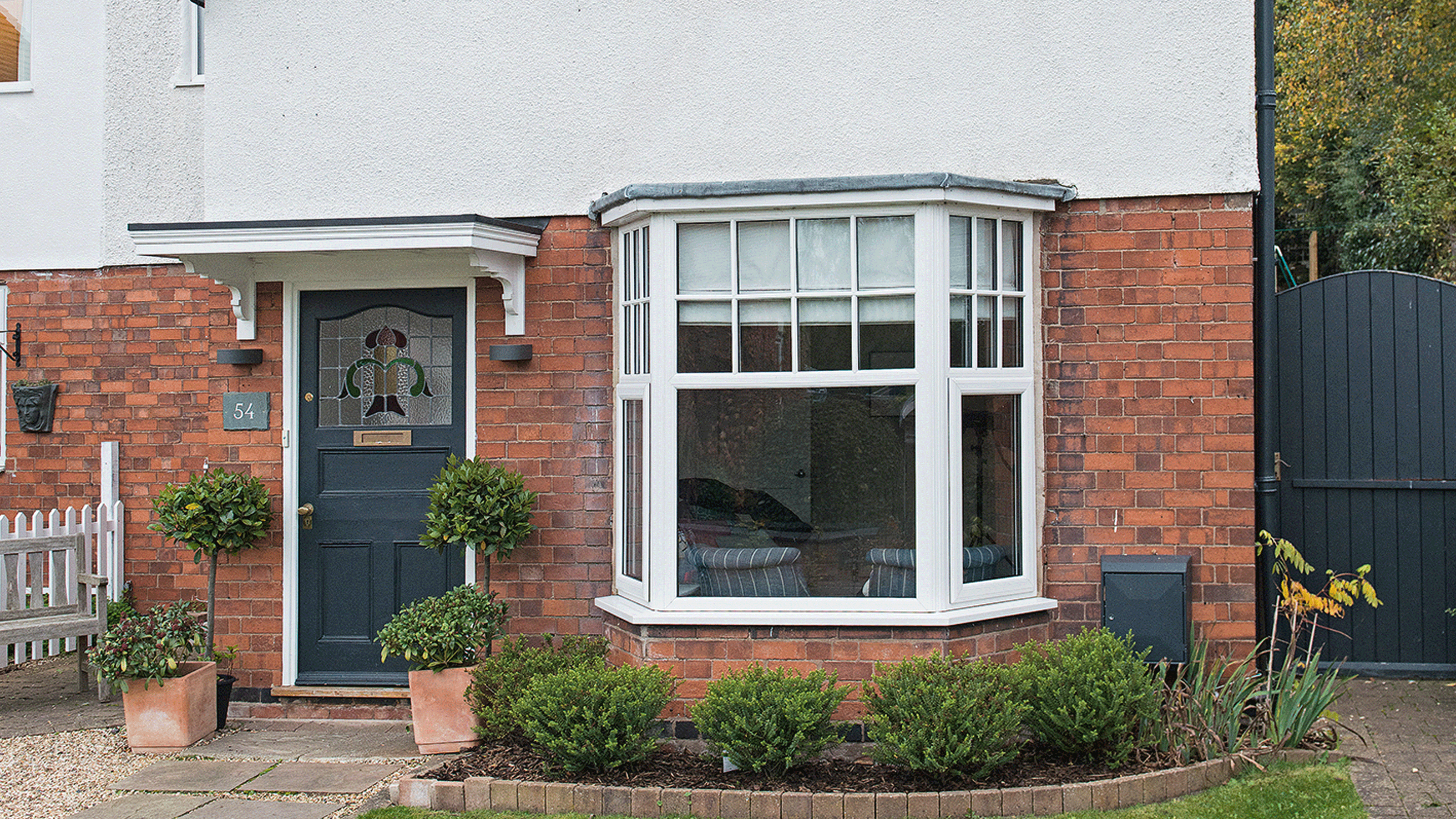Estate agent fees – how much to pay and what do they cover?
Estate agent fees can make up a large chunk of your moving home costs. Read our expert guide so you know exactly what to expect for your money

Unlike the past two years, homes are no longer flying off the market in record time and at a premium. If you're selling up and moving house, this makes your choice of estate agent and the estate agent fees you pay an important decision.
The arrival of online agents has given sellers another option which is much cheaper than a traditional high street agent. Some online agents pledge to sell your home for free while others quote fees ranging from £1,000 to as much as £15,000 for a £1 million home.
Following the increase in mortgage rates last year, which remain high compared to the cost of borrowing over the last decade, saving money is at the forefront of movers’ minds.
But as the estate agent acts for the seller and it’s their job to get the best price for your home, is scrimping on the fee a smart way to save money or a false economy? Read our guide to help you decide.
What do estate agent fees actually cover?

Estate agent fees are part of the cost of moving house. For your fee, you should expect:
- A visit from the agent to your home, to arrive at a realistic valuation based on recent local sales, the status of the location and the property’s specification and condition
- A photographer to take marketing images and a draftsperson to draw up a floorplan
- A detailed written description to attract potential buyers
- The creation of an online listing, combining the written description, images and floorplan
- Marketing your listing via online platforms such as Zoopla or Rightmove, together with the agency’s own website and direct mail to its customer base
- Managing viewings (some agents offer a discount if you want to do this yourself)
- Liaising between you and prospective buyers and negotiating on offers
Are the fees negotiable?
Whether fees are negotiable or not might depend on the type of agent you use, but it never hurts to ask. Online agencies are unlikely to negotiate on fees. This is because they’re so much lower than traditional agencies’ fees.
David Hill, regional director at estate agency Marsh & Parsons, says: ‘I don’t think estate agent fees should be negotiable but many agents feel the best way to gain business is by slashing their fees.
Sign up to our newsletter for style inspiration, real homes, project and garden advice and shopping know-how
‘Personally, I can’t understand how all sellers can be treated equally and with excellent service if they are all on different fee structures. Also, the seller should consider if they can have full trust in an agent to deal with negotiations on their home if they can’t negotiate to defend their own fee.’
High street agents may quote a 1 or 1.5 per cent fee, but may well accept a lower figure. This is especially true if a rival has made a better offer. Pointing out the enormous difference between what they charge and what an online agent charges can exert pressure on agents to reduce their fees. Some agencies will propose a higher percentage fee if they can make a quick sale. This then reduces if the property takes longer to sell.
Going with the agent who will offer you the cheapest fee or one that is prepared to readily drop theirs to win your business is gamble. The fee you pay should reflect the quality of service you receive.
‘If you expect a premium service you should expect to pay for it,’ adds Hill. ‘If you have an excellent estate agent that knows the conveyancing process intimately, they will be able to ensure a faster transaction from under offer to exchange of contracts. The longer a sale takes, the higher the chance a buyer will try and renegotiate the price, so if this can be avoided, the seller will save a huge amount of money in the grand scheme of things.'
How are the fees calculated?

Online agencies calculate their fees based on broad price bands. They may have different flat fees for, say, properties under and over £1 million. They may also vary their fee according to whether you’re using their recommended legal adviser. Plus whether you’ll be showing potential buyers around the property yourself. They typically offer add-on services such as mortgage finance, for additional fees.
High street agencies will charge a percentage of the eventual sales price. This percentage may vary according to factors such as the sale price of your property, the level of local competition and whether they’re your only agent. Whether you’ve engaged several firms to try to sell will also impact the fee. Agencies charge a higher percentage if another agency is involved.
Agencies such as Savills or Knight Frank, which sell more expensive homes, are likely to quote higher percentage fees. Savills does not publish its fee but Knight Frank charges approximately 2%. High end agents justify this by pointing to their databases of wealthy potential customers. Other agents may not have these resources.
Knight Frank says its fee includes national print and online advertising, help from an in-house research team who analyse the property marker and tailored PR and social media support.
Are online estate agent fees cheaper?

In theory, yes. Online estate agents typically charge a flat fee, ranging between £1,000 and £2,000. High street agents charge a percentage of the eventual sale price, typically between 0.75 per cent and 3.5 per cent. This means the fees for even relatively modest property transactions will be higher.
Some online agents offer to sell your home for free. If you choose the free service, you will not receive some services such as hosted viewings or premium listings. You’ll have to show prospective buyers around yourself. You may also have to use their recommended solicitor to get the free service. The agent then receives a fee from the solicitor. They will also earn referral fees from mortgage brokers.
Sam Mitchell, chief executive of online agent Strike, says online buying and selling is the future of estate agency. ‘Online allows for a more efficient and cost-effective way of buying and selling properties,’ he explains. ‘Online platforms make it easier for buyers and sellers to connect with each other. They can do so from anywhere in the world and no longer have to rely on local estate agents.
‘Additionally online platforms allow for the easy sharing of information and documents which makes the process of buying and selling a property much faster and more convenient.’
Who pays the fee – the buyer or the seller?
The seller pays the estate agent’s fees, even though agents theoretically ‘work’ for buyers and sellers. With online agencies, some fees are payable in advance, or sometimes within 10 months of the property going on sale. High street agents are only paid once a property is sold.
Are there any hidden costs to be aware of?
Beyond the initial fee, some agencies charge extra for services such as photography, floorplan drafting, showing potential buyers around, mortgage finance arrangement and legal work. Ask for a list of what the fee includes before you instruct an agent.
How to choose between an online or high street estate agent

Online agents typically charge an upfront fee, which may not be refundable if you don’t get a sale, while the traditional model is to only make a charge once a transaction completes. That makes the decision something of a gamble. Do you go for a lower fee or no fee with no certainty of a sale? And should you ever pay upfront?
Many agents argue you should never pay a fee upfront before any work has been done to sell your home. Some online platforms, such as Yopa, offer buyers the option to pay upfront or on completion.
Online agents argue their strengths lie in the digital marketing of your property and being able to accurately value your home based on data. ‘Pricing correctly to generate multiple interested parties is key,’ says Mitchell. ‘There is nothing more powerful than having buyers competing in order to maximise value.’
He recommends having three estate agent valuations, with at least one from an online agent, before choosing who to go with. Look for personal recommendations and read online reviews before making your mind up.
Sellers choosing an online agent should remember that they may receive little to no sales support once their property has been marketed and they may not have a dedicated agent progressing the sale or navigating it around bumps in the road, such as renegotiations, if necessary.
One final point: the longer a sale takes, the more expensive it is likely to be: you may have to rearrange finance or engage a new agency. So price isn’t the only factor to think about when choosing an agent - above all, you need a firm that will work hard on your behalf to achieve a prompt sale.
Samantha Partington is a personal finance journalist specialising in mortgages and the property market.
Over the past nine years, Samantha has worked for the Daily Mail, trade website Mortgage Solutions and business title Property Week. She regularly writes for national money pages including Money Mail and Sun Money and supports prop tech firms with content writing.